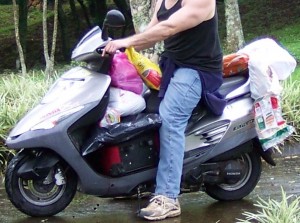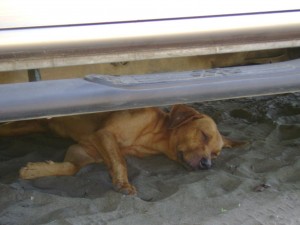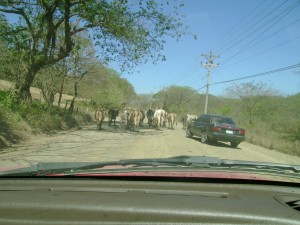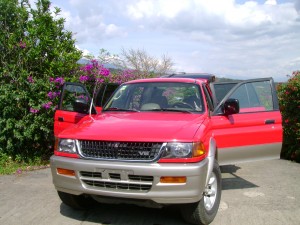GRAVEL…IT’S THE OTHER WHITE MEAT
 Costa Rica Cost Of Living Update: Limited liability insurance for scooter- $140/year
Costa Rica Cost Of Living Update: Limited liability insurance for scooter- $140/year
We take our scooter everywhere since it only cost $6 to fill up the tank. It is so economical we’ve even decided to go grocery shopping with it.
Today’s list was extra long so my husband went himself. He came back with the following: a suitcase full of fruits and vegetables, 3 dozen eggs, a gallon of milk, 2 loaves of bread, bag of kitty litter (cautiously positioned between his legs), and a variety of other items. The only casualty was the tortillas, the empty bag dangling off the back in defeat. But not wanting to waste money, he drove back down the mountain and found them laying near the front gate.
He claims only the bottom one got dirty. If that’s true, why does my taco taste like asphalt?



